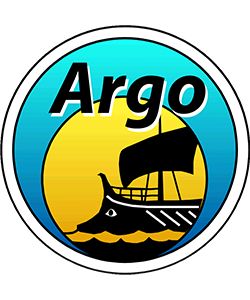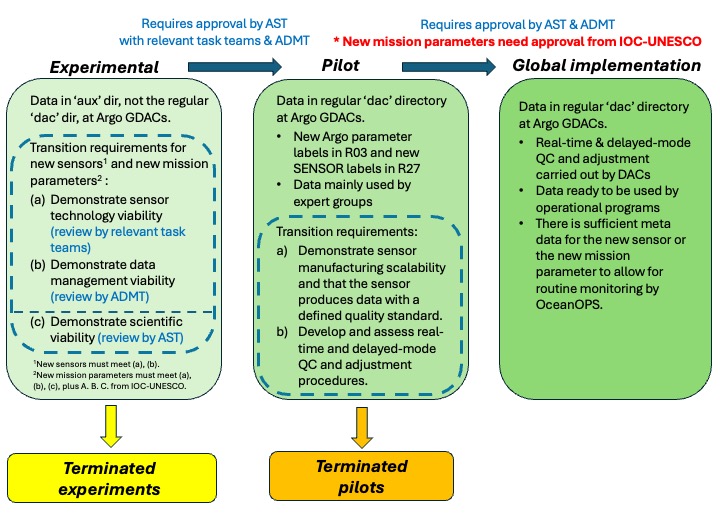In 2018, UNESCO’s Intergovernmental Oceanographic Commission (IOC) approved six biogeochemical parameters for Argo floats and established a framework for future parameter additions. Since then, new sensors and CTDs have been evaluated for their readiness and cost-effectiveness in the global Argo program. Click here to access the IOC documents.
The development process follows three phases:
- experimental
- pilot
- global implementation
As Argo expands, clearer definitions of these phases and transition criteria have become necessary, along with a framework that encourages experimentation while preventing it from overwhelming Argo’s core missions.
A document has been created to describe the pathway for admitting new sensors and mission parameters into Argo through these three phases. While following IOC-UNESCO guidelines for new parameters, it extends to include new sensors with additional considerations for the Argo data system to prevent unnecessary burden. The framework acknowledges that not all experimental work will advance to pilot or global phases, providing transparency about required procedures and practical guidance for each development stage.
Access the document via this link: https://doi.org/10.13155/108751

